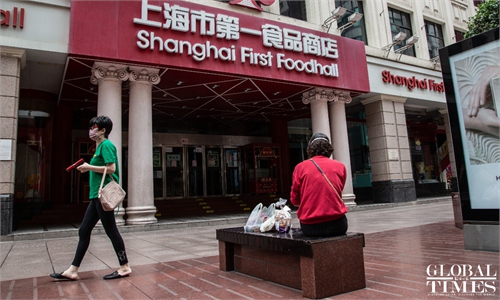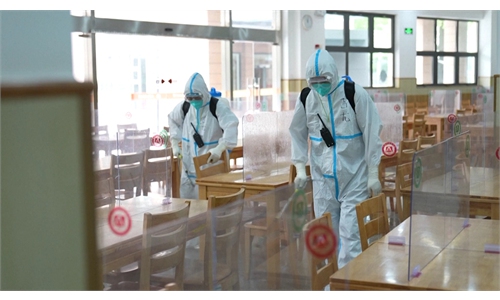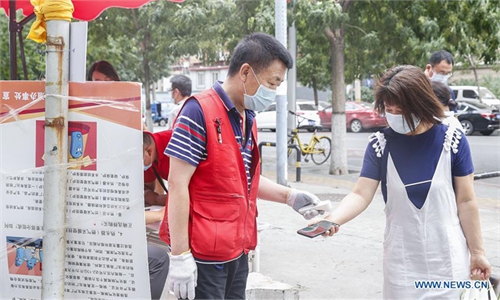Negative test results within 72 hours required at public venues, public transportation in Shanghai as city speeds up business resumption

Shanghai First Foodhall is open for two hours every morning. Photo: Shi Liu/GT
Negative results for nucleic acid tests obtained within 72 hours will be required to enter public venues and taking public transportation in Shanghai from Wednesday, as announced by the local authority on Sunday, to consolidate the achievements of epidemic prevention efforts and to speed up production and work resumption.
The epidemic prevention and control work in Shanghai has achieved the critical stage of regularized prevention and control as the epidemic situation steadily improves, Yin Xin, spokesperson of Shanghai Municipal People’s Government, announced on Sunday.
Yin specified that negative test results obtained within 72 hours are required to enter public venues and to take public transportation in Shanghai from June 1.
Additionally, personnel leaving Shanghai have to present negative nucleic acid test results obtained within 48 hours as well as negative antigen tests results obtained within 24 hours. Those who have negative results for nucleic acid testing obtained within 24 hours can be exempted from presenting the negative antigen test results.
For people who want to go to or return to Shanghai, a negative nucleic acid test result obtained within 48 hours is required.
Employees working in airports, ports, medical institutions, centralized quarantine sites, cold-chain logistics industry, as well as couriers and workers who maintain the day-to-day operations of the city will continue to be required to undergo regular nucleic acid tests, according to national and the city’s regulations.
These regulations will be adjusted dynamically according to the future epidemic situation, Yin said.
As an essential part for the resumption of the city’s business activities, promotion for catering service in the city will be boosted with a series of guidelines.
According to Lai Xiaoyi, an official from the Shanghai Municipal Commission of Commerce, the catering services in the city still provide only take-outs at present and the dine-in service will be gradually resumed.
According to Lai, a total of 2,737 outlets, accounting for 30 percent of the 9,148 outlets of 178 food enterprises, have resumed to provide take-outs ordered online and offline. Around 17,900 workers, accounting for 12 percent have returned to their positions.
The guidelines for the local catering service business resumption have been rolled out recently, requiring the stores to detail closed-loop management plans for workers and emergency response plans, as well as to conduct a thorough preventive disinfection of the venues, Lai said.
According to the guidelines, workers returning to their positions in the catering service have to complete their vaccination procedures, and those eligible have to complete their booster shots.
All the employees returning to the workplace have to be placed under closed-loop management. They have to experience a two-day self-regulated isolation period before they can resume working. After they resume working, they will need to undergo continuous daily nucleic acid testing.
In addition, venue health codes and devices that can check real-time health information have to be set up at the business venues to check every person entering.
Strict environmental disinfection has to be conducted every day at the workplace after it becomes operational again. All the goods purchased and the transportation vehicles will also have to be disinfected as well.
Food safety management will also be emphasized by checking couriers’ digital passes.
Global Times



